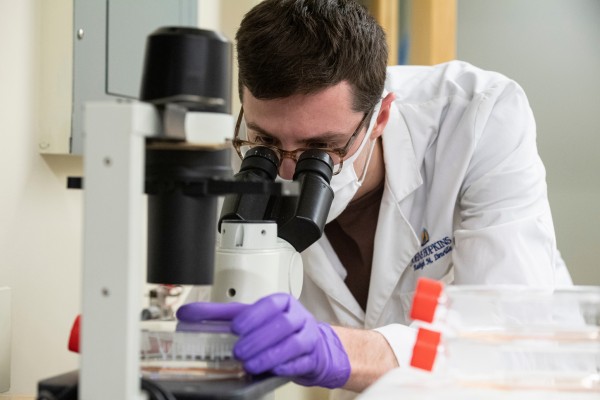The Human Aging Project has been established to bring together leaders and expertise from across Johns Hopkins University to collaboratively conduct research and translate findings into innovations that will slow the development of aging-related diseases, disability, functional decline, and the loss of independence. Collaborations across programs in engineering, biology and clinical translation related to aging provide important opportunities for scientific synergies and discovery. Grants from the National Institute of Health have provided essential funding to the following collaborative efforts that seek to identify innovative solutions that promote healthy, dignified and joyful aging.
The Johns Hopkins Center on Aging and Immune Remodeling (JH CAIR) aims to optimize immune function and promote healthy aging through cutting edge research of the causes and mechanisms of aging and immune remodeling and through translating research discoveries into clinical and public health practice. For more information, please contact [email protected].

The Claude D. Pepper Older American Independence Center (OAIC) provides a hypothesis-driven, frailty-focused, highly interdisciplinary center where supported investigators receive the expertise, resources, and training necessary to make fundamental discoveries related to the origins and causes of frailty and then move these discoveries towards frailty-focused interventions. Learn more: https://coah.jhu.edu/oaic/ and https://frailtyscience.org/

The Validation of Nuclear Morphology as a Biomarker of Aging and Aging-Related Phenotypes uses novel measurement technologies to measure how cell components change with aging, disease states, and frailty, in an attempt to develop a consistent measure of cellular biological age. Learn more: https://reporter.nih.gov/project-details/10199917

The Study of Physical Resilience and AgING (SPRING) focuses on the physiological systems governing energy metabolism (via glucose tolerance testing) and stress response (via in-vivo adrenocortical axis testing and ex-vivo immune system cell response) in subjects who are about to undergo medical or surgical procedures which serve as major stressors. Dynamic responses in these stimulation tests seek to provide insight into the function of the physiological systems potentiating resilience and allow us to develop surrogate and baseline biological measures that help to predict vulnerability. Learn more: https://link.springer.com/article/10.14283/jfa.2020.8
